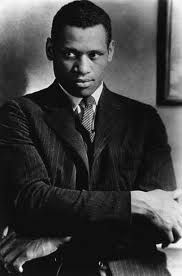I’ve often been interested in genealogy, and have recently discovered that I have some first generation Quaker relatives. A Friend from my Meeting recently asked about my family history after worship, so I thought I might provide that which I know. The people described here all hail from from a village named Hunsdon, which is in Hertsfordshire, north of London. If you need a point of reference, Hunsdon is in the East of England, roughly 25 miles north of London.
Tag: persecution
Feb 24 2011
By-Products of a Damaged World
I’ve recently been reading the late UK novelist’s Muriel Spark’s book The Comforters. Her first effort at the genre, it describes in detail the life of Caroline Rose, a recent convert to Catholicism. Set in 1950’s Britain, Rose is first supremely skeptical of organized religion. The fellow believers with whom she interacts have an intellectual understanding of the faith, but to her they lack real sincerity. Beyond that, she believes that these people appear to fabricate God’s presence in their lives, rather than displaying the humility only a truly Divine relationship can produce. In particular, Caroline finds one frequent, unfortunate practice most distasteful of all.
Jan 23 2011
“You Are the Un-Americans, and You Ought to be Ashamed of Yourselves”
Crossposted at Daily Kos and The Stars Hollow Gazette

On January 23, 1976, one of the greatest Americans of the twentieth century died a nearly forgotten man in self-imposed seclusion in Philadelphia, Pennsylvania.
Over the last three decades or so, you rarely, if ever, hear his name mentioned in the popular media. Once every few years, you might hear someone on PBS or C-Span remember him fondly and explain as to why he was one of the more important figures of the past century. In many respects, he had as much moral authority as Nelson Mandela, Martin Luther King, Jr. and Rosa Parks; he was as politically active as Dick Gregory, Harry Belafonte, John Lewis, and Randall Robinson; and, as befits many men and women motivated by moral considerations, he conducted himself with great dignity. For much of his life, not surprisingly and not unlike many of his worthy successors, he was marginalized and shunned by the political establishment of his time — until events validated their ‘radical’ beliefs and resurrected their reputations.
Throughout his life, few principled men of his caliber paid as high a price and for as long a period as he did for his political beliefs.
